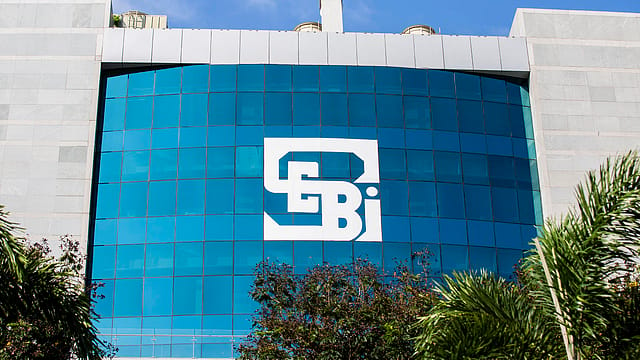Surveillance measures to address excessive volatility: SEBI on Adani stocks
ADVERTISEMENT

The Securities and Exchange Board of India (SEBI) on Saturday said it has put in place "a set of well defined, publicly available surveillance measures" to address excessive volatility in "specific stocks".
This is the market regulator's first statement after several Adani Group stocks witnessed an "unusual price movement" over the past 10 days, dragged down by a 100-page report by New York-based Hindenburg Research.
The SEBI statement also comes two days after the NSE put three Adani Group companies — Adani Enterprises, Adani Ports and Ambuja Cements — under the short-term additional surveillance measure (ASM) framework.
This ASM mechanism gets automatically triggered under certain conditions of price volatility in any stock, says the market watchdog.
"In all specific entity related matters, if any information comes to SEBI's notice, then, as per extant policies, the same is examined and after due examination, appropriate action is taken," says the capital markets regulator.
"SEBI is committed to ensuring market integrity and to ensuring that the markets continue to have the appropriate structural strength to function in an uninterrupted, transparent and efficient manner as has been the case so far," SEBI says, adding it has consistently followed this approach on entity level issues and would continue to do so in future as well.
The Indian financial market as represented by Sensex and Nifty has demonstrated ongoing stability and is continuing to function in a transparent, fair and efficient manner, SEBI says.
"On a longer term basis also, Indian markets have been viewed positively by investors. Across country comparison of dollar adjusted market returns with both peer and developed countries, during the past 3 years till date, places the Indian market as a positive outlier," it adds.
As the selloff in Adani Group stocks continued on Friday, the Reserve Bank of India (RBI) said the banking sector remains resilient and stable as per its current assessment. "There have been media reports expressing concern about the exposures of Indian banks to a business conglomerate. As the regulator and supervisor, the RBI maintains a constant vigil on the banking sector and on individual banks with a view to maintain financial stability. The RBI has a Central Repository of Information on Large Credits (CRILC) database system where the banks report their exposure of ₹5 crore and above which is used for monitoring purposes," the central bank said.
"Various parameters relating to capital adequacy, asset quality, liquidity, provision coverage and profitability are healthy. Banks are also in compliance with the Large Exposure Framework (LEF) guidelines issued by the RBI," it added.
Credit rating agency Moody's on Friday said these adverse developments are likely to reduce Adani Group's ability to raise capital to fund committed capex or refinance maturing debt over the next 1-2 years.
It, however, added that a portion of the capex is deferrable, and the rated entities — Adani Ports and Special Economic Zone, Adani Green Energy, and Adani Transmission — do not have significant maturing debt until FY25.
The credit rating agency is also assessing overall financial flexibility, including their liquidity position and access to funding to support refinancing and ongoing growth initiatives.